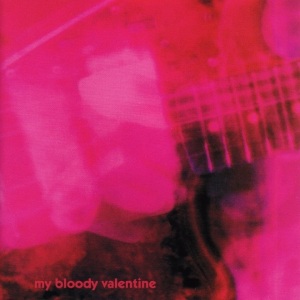 I guess, if truth be told, I have put off writing up my blog on Ekstasis, mainly because I don’t really know what to write about.
I guess, if truth be told, I have put off writing up my blog on Ekstasis, mainly because I don’t really know what to write about.
I could write about the music itself, which is exquisite; complex in structure yet often simple in sound, it conjures up, almost exactly, the image on the cover of the album – opaque, stately, almost classical, and calming in a monochromatic way. This is not music that grabs you by the lapels and demands your attention. No, this is music that creeps up on you, ekes its way into your affections bit by bit until you realise, one day, that you are in love. But writing about music is boring, so I won’t do that.
I could write about Holter herself; about how she grew up in Los Angeles and then went to university in the same goddam town (who does that?) to study musical composition. But if I were to do that, you would all be thinking, ‘surely she isn’t feeling it for real, surely it all sounds like some anodyne textbook exercise, unemotional, distanced, detached’. And in some ways, you would be right, but you would also be so, so wrong. And I wouldn’t want you to get the wrong idea about Julia Holter because:
a) She’s lovely.
b) She makes unbelievably beautiful music.
So I won’t be risking you getting the wrong impression about Miss or Ms (don’t think it’s Mrs) Holter by writing about her either.
I could write loads about the first track off the album, Marienbad, which is, it turns out, a spa town in the Czech Republic. But nothing I write about this incredible piece of music could do it justice – even if I could find a way to adequately describe the way it twists and turns and segues and never repeats and has a breathtaking hook that takes her four minutes to get around to – well, you would still need to listen to the thing because it’s much, much better than my words can do.
So I’m going to leave it at this: Ekstasis is a brilliant, amazing, magnificent, stupendous, exquisite, spellbinding, fragile, innovative album….and, by my reckoning, is one of the very best albums that I have heard this decade/century/(hell, let’s go for) millennium. And I know this as it is just about the most difficult record to listen to that I own. ‘Hang on’ I hear you cry, ‘haven’t you wittered on before about Trout Mask Replica and Sun Ra and The Red Crayola and John Coltrane. Surely Julia isn’t in the same ballpark?’ And I’d have to agree with you, because Ekstasis is nothing but a pure pleasure to spend time with. ‘So what do you mean?’ you’d remark, somewhat exasperatedly. So, I’d chuckle a bit and go on to explain that with four short sides of 45rpm vinyl, Ekstasis takes more effort to tee up and play through than almost anything else in my collection bar A Gilded Eternity by Loop…and I can’t remember the last time I bothered to listen to that! The fact that Ekstasis regularly finds itself on my turntable is surely proof enough that this is a remarkable work of art, one that I can not recommend highly enough and one that I have found very difficult (as I am sure you’ll agree) to describe.
Buy it.
Rob listened: As Tom worried about being unable to write about this for a week and a bit, my memory of it has faded sufficiently that I too now have very little to write about it. I did really enjoy it at the time. We talked a lot about who it sounded a little like, or more who it seemed to share a compositional palette with. The names mostly bandied around were those of artists whose work I tend not to connect with quickly and over time either come to dislike, or to admire as exhibition pieces, rather than living, breathing music. I thought ‘Ekstasis’ sounded divine though, and somewhere, off at some wild perpendicular, it created a hitherto un-noticed overlap in my musical venn-diagram, just between Oneohtrix Point Never and Grouper. And there it will stick until I have time to love it properly.
Nick listened: It’s much easier to listen to on CD; you just put it in the machine and press ‘play’ once, and 60 minutes later you’re feeling content and blissful.
I bought this after Tom played “Marienbad” at us a couple of years ago, but I must confess I’ve not listened to it a huge amount since then. I should do; it’s lovely. As is her follow-up, the slightly earthier, brass-tinged Loud City Song, which I listened to quite a bit more. I’ll go back to this; I want to go back to it. It’s beautiful.
And slapped wrists for Mr Rainbow for once again suggesting, in a roundabout way, that studying something and being trained in it somehow means you don’t have, or somehow lose, ‘soul’ or ‘authenticity’ or ‘passion’, which is crazy talk, you old punk. (I’m aware that Tom is about the least punk person I know. And also not old.)




